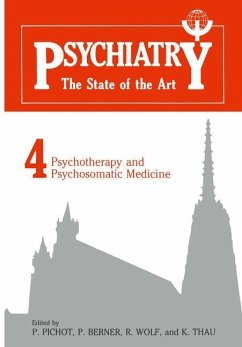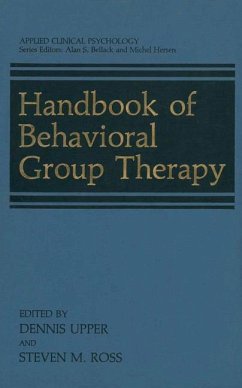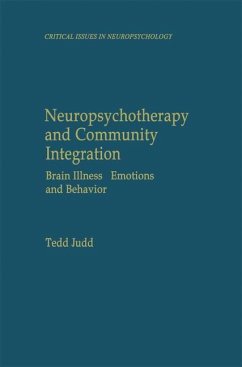
Treatment of Schizophrenia
Family Assessment and Intervention
Ed. by Goldstein, Michael J.; Hand, Iver; Hahlweg, Kurt

PAYBACK Punkte
39 °P sammeln!
A group of people are seated together in a tried to explain it to you, you wouldn't un room. Recently, they have shared two derstand,' and this went on and on in a big circle, nowhere, - no information at all!" important experiences - they have lived The feelings of these relatives are not with a close relative, usually an offspring or spouse, who has been through an episode unique. Until recently, many relatives of of a major mental disorder, most often of a schizophrenic patients experienced some schizophrenic type, and they have also been form of rebuff by mental health profes participants ...
A group of people are seated together in a tried to explain it to you, you wouldn't un room. Recently, they have shared two derstand,' and this went on and on in a big circle, nowhere, - no information at all!" important experiences - they have lived The feelings of these relatives are not with a close relative, usually an offspring or spouse, who has been through an episode unique. Until recently, many relatives of of a major mental disorder, most often of a schizophrenic patients experienced some schizophrenic type, and they have also been form of rebuff by mental health profes participants in an experimental program sionals while their relative was treated as an designed to assist them and their disturbed inpatient and little or no involvement in the relative in modifying family patterns to aftercare process when the relative re foster rehabilitation. The experimental turned home. These attitudes of mental programs involve maintenance pharmaco health personnel reflected both the prevail therapy as well as a combination of family ing wisdom of the time that the family, be education and therapy.














